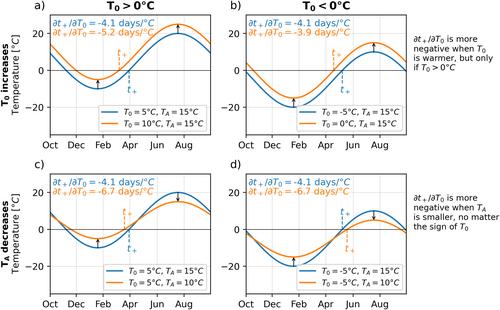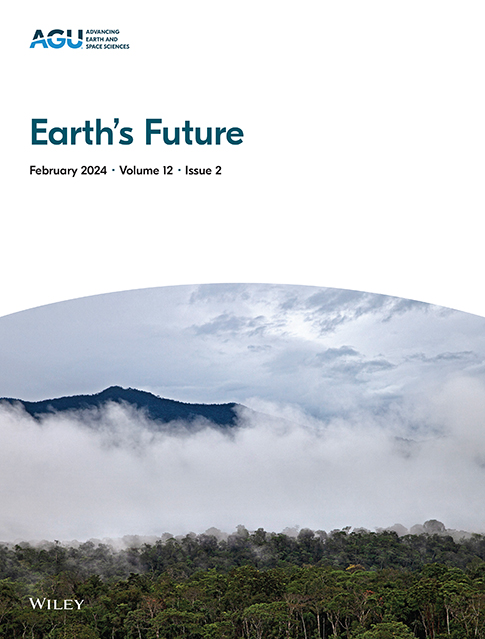The Streamflow Response to Multi-Day Warm Anomaly Events: Sensitivity to Future Warming and Spatiotemporal Variability by Event Magnitude
Abstract
Persistent warm temperature anomalies can drive streamflow in regions where snow and glacier melt are important constituents of streamflow. However, the spatiotemporal variability of the streamflow response depends on both the magnitude of the forcing temperature anomalies and the nature of the underlying hydrological system. Here we ask: when, where, and for what magnitude of temperature anomalies will the streamflow response change most rapidly under warming? We use observed streamflow and temperature for 868 basins across Canada to quantify the streamflow response during warm temperature anomalies and how such responses vary in space, time, and by anomaly magnitude. We first identify two temporal modes of the streamflow response, one in autumn and one in spring, the relative strength of which varies by climate. We then use sinusoidal approximations of seasonal temperature cycles to characterize the sensitivity of such modes to changes in annual temperature. At individual basins, we find that relative to moderate warm events, the streamflow response to more extreme warm events is more sensitive to changes in mean annual temperatures, and this sensitivity is greatest in the coastal, southern, and central regions of Canada. Our results have implications for how the hydrological impacts of extreme events, such as heatwaves, will change in space and time under future climate change.


 求助内容:
求助内容: 应助结果提醒方式:
应助结果提醒方式:


